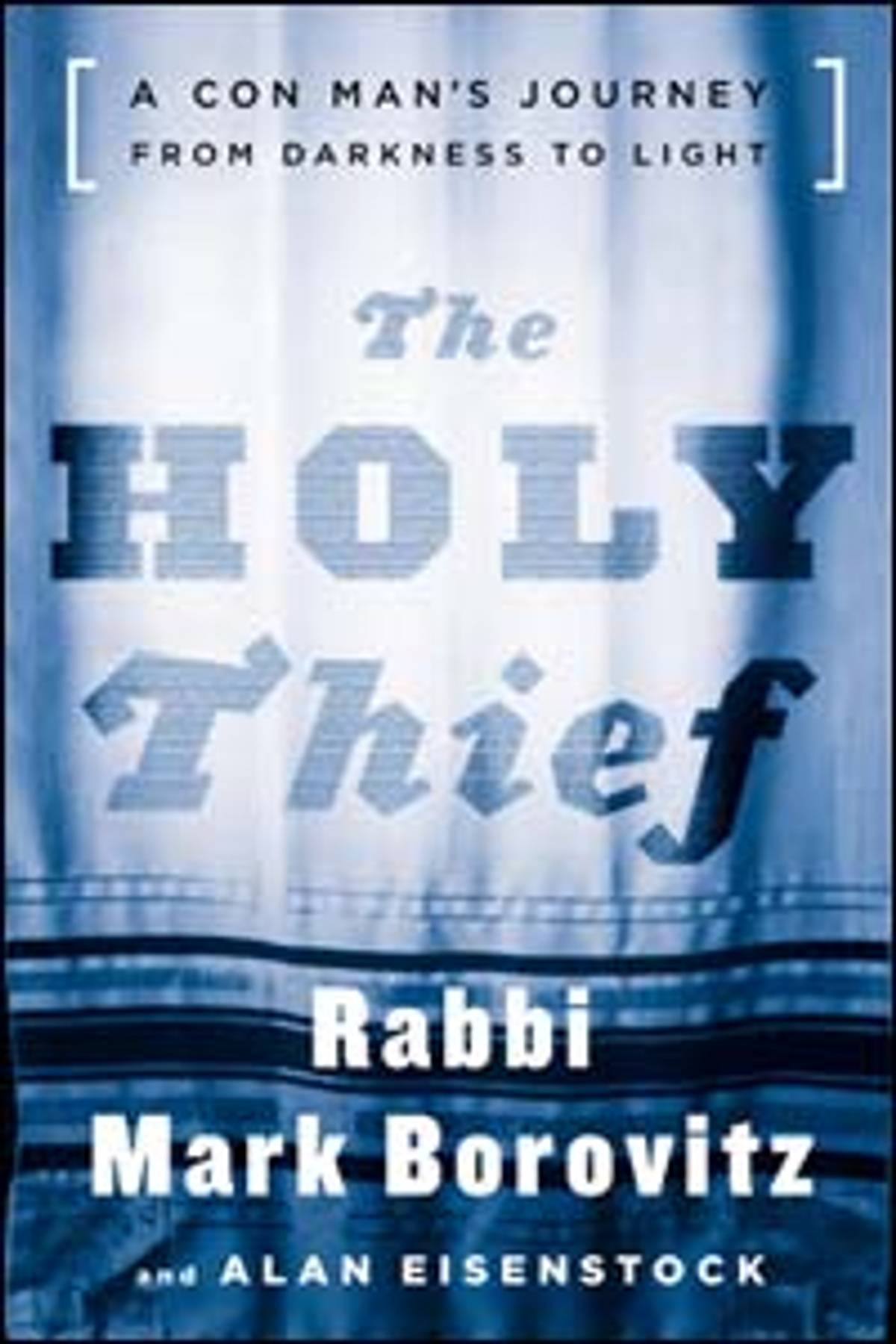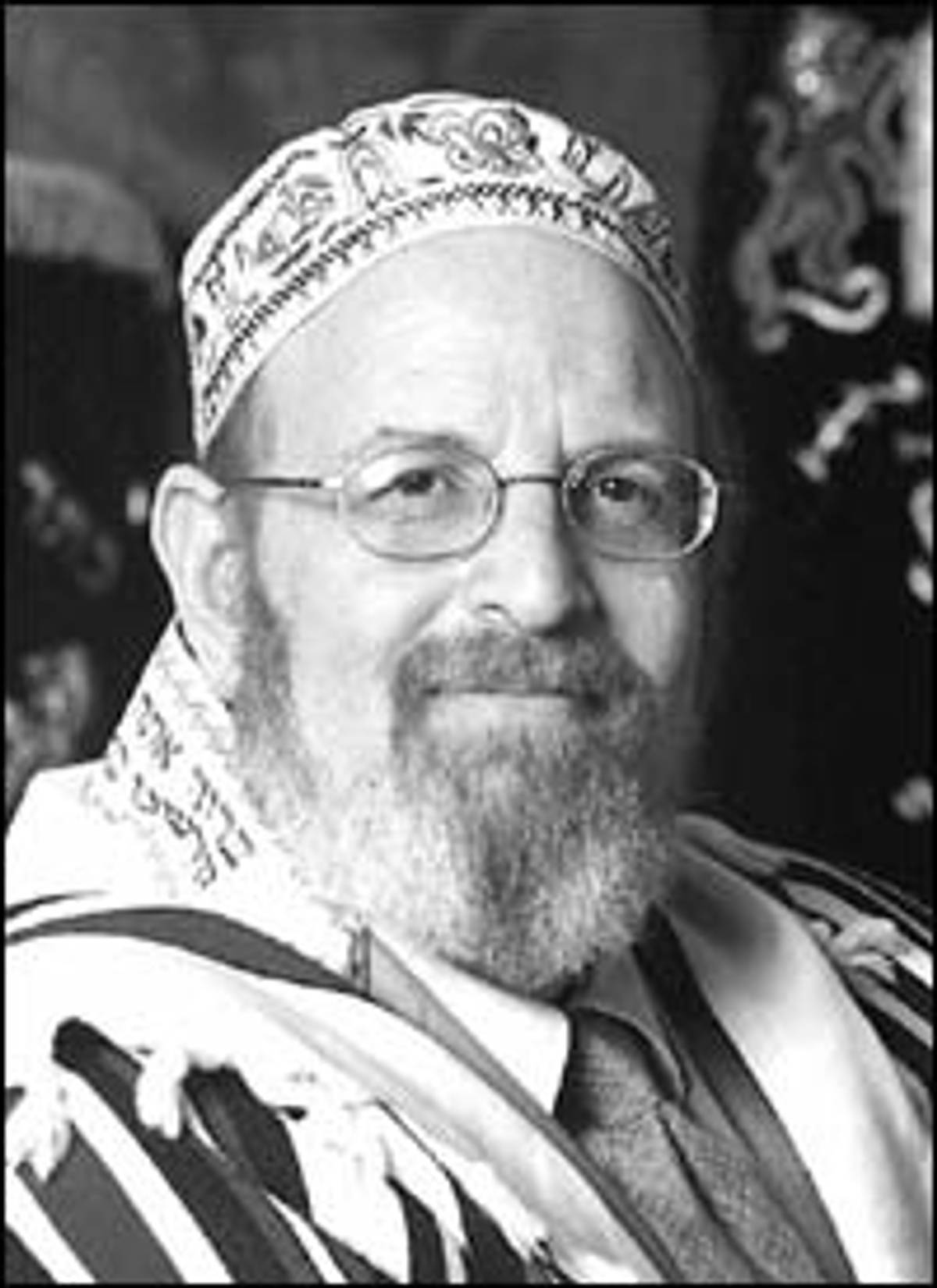Rabbi Mark Borovitz’s memoir of how prison Torah study turned an alcoholic grifter and check-kiter into a successful rehabilitator of Jewish cokeheads, gamblers, and other addicts, is a blustering and grandiose book, marred by clichés and solecisms. And yet I liked The Holy Thief: A Con Man’s Journey from Darkness to Light, very much. There have been so many bad recovery memoirs cultivating readers’ cynicism that one can forget how amazing the redemption of a human soul is; something about the blunt, antiliterary voice of Borovitz (or, more probably, his co-writer, Alan Eisenstock) perfectly conveys the hustler, the tough Jew who turns his talent for persuasion to better ends.

Jewish law-abidingness was not my only preconception challenged by The Holy Thief. One tends not to associate addiction recovery and Jewish spirituality. Where do Jews go when they get hooked on amphetamines or alcohol? Not to shul, but to places with names like Rolling Hills or Hidden Valley where, of course, most of the residents are surely Christians. What could it mean for Torah to play a role in addiction treatment?
The Holy Thief does not quite get to the heart of this question; the book ends with Mark getting out of prison, finding work at the then-new and experimental Beit T’Shuvah, marrying its founder, and being accepted to study for the rabbinate at the University of Judaism. The final pages are devoted to a schmaltzy testimonial from a rabbi friend given to understated claims like: “In so many ways, Mark is more a prophet than a rabbi.” But there is almost no discussion of what, exactly, Mark and his co-workers do.
To learn more, I visited Beit T’Shuvah, on Venice Boulevard. There, Rabbi Mark and his wife, Harriet Rossetto, the social worker who founded the center, gave me a tour of their small campus. It has dormitories for 100, a cafeteria, and a shul that every Friday draws 350 people: current residents, alumni, and some neighbors who just like Rabbi Mark’s revival-style services. Harriet and the rabbi explained their treatment program for Jewish addicts young and old, some poor, others the children of Hollywood moguls. It’s a combination of worship, Torah study, group therapy, individual psychodynamic therapy, and traditional Twelve Step recovery on the Alcoholics Anonymous model.
Somehow, this melding of Judaism with Twelve-Stepping struck me as even less probable than the notion of Jewish addicts. I think this had something to do with my sense that the Twelve Steps are, like Wicca and est, goyish. AA’s founders were openly Christological; when they enjoined their followers to put faith in a higher power, it was clear whom they meant. “A power greater than ourselves” leaves room for interpretation, and AA’s emphasis on confessional prayer and humiliation before a deity has worked for Jews, Muslims, and even Unitarian-style deists. Still, like other quintessentially American self-help or empowerment formulas, like the Rev. Norman Vincent Peale’s power of positive thinking or Stephen Covey’s Mormon-derived habits of highly effective people, AA is clearly rooted in Christianity.
As we sat in Harriet’s office, I asked the couple, “Am I alone in my perception that the Twelve Steps are, well, Christian?”

While I agreed that Judaism and Twelve Step recovery seemed to have a good deal in common, I was not sure that Rabbi Mark had located the real connection. While Yom Kippur comes once a year, thrice-daily prayers and frequent shul-going are the kinds of habit-forming practices that can keep the monkey off one’s back. They can also prompt theophanies, real spiritual experiences of the kind that recovering users often need.
“I think,” Harriet said, “that the perception that the Twelve Steps are Christian comes from the personal relationship with God, and most Jews don’t have a personal relationship with God. The Orthodox more often find that the steps make sense.”
“Some of them,” Rabbi Mark added.
“Yes, only some of them,” Harriet agreed.
In other words, even many Orthodox Jews practice their religion dutifully but without any sense that they are communing with a real God. They could use a good dose of Beit T’Shuvah, where the people I met believed that their sobriety was truly a gift. And they clearly had formed a culture of support, which is what a Jewish congregation is supposed to be. The rabbis of old did not intend for thousand-family megasynagogues; they settled on minyans of ten, favoring a small, intimate culture of support rather than the large spectacle that the Temple must have been.
While I was sitting in the rabbi’s study, Jeff, a graduate of Beit T’Shuvah, stopped by just to say hello. He is out in the world now, practicing law as he used to, but this was still his family. Rabbi Mark told me that some of Beit T’Shuvah’s residents had never been addicts at all, just lonely or destitute Jews with nowhere else to live. The Beit T’Shuvah residents are nice in a way that the average hardened urbanite can find creepy. The experience of unearned decency, the menschlichkeit of others, is something people long for until it is upon them, when it can upset protective notions of what others are like. So when Lubavitchers (who also have successful addiction treatment programs, by the way) invite us for Shabbos dinner or Pesach, we are a little put off. If you have traveled to Salt Lake City, you will know the experience of having a Mormon offer you a place to stay. What is it these people want? we ask. We aren’t quite sure, so we call their religions cults, and that’s the end of it.
When I asked if the secretary would call me a cab, Rabbi Mark jumped in and said he would find a ride for me. He poked his head into an adjoining room and emerged with Phil, a fortyish man with blue eyes and a deep California tan, now in his ninth month at Beit T’Shuvah. Phil offered to take me back to my hotel, and I gladly accepted.
“It’s a miracle that I am alive,” Phil said, as he pulled onto Pico. “I should be dead or using. But it’s a miracle. The rabbi is a miracle. We’re all miracles.”
Yes, he had the strange sound of a fervent convert. As expressed by Rabbi Mark, Harriet, Phil, and other Twelve Step devotees, that faith, so honest and genuine, sounds hokey, at the very least. At worst, if one doubts its sincerity, such faith seems sinister: how evangelical, how Christian. But Beit T’Shuvah’s brand of homely decency, buttressed by a recovery program first drafted by a couple of Christian alcoholics, is, like alcoholism itself, no stranger to Judaism.
Mark Oppenheimer is Tablet’s editor at large. He hosts the podcast Unorthodox.
Mark Oppenheimer is a Senior Editor at Tablet. He hosts the podcast Unorthodox. He has contributed to Slate and Mother Jones, among many other publications. He is the author, most recently, of Squirrel Hill: The Tree of Life Synagogue Shooting and the Soul of a Neighborhood. He will be hosting a discussion forum about this article on his newsletter, where you can subscribe for free and submit comments.